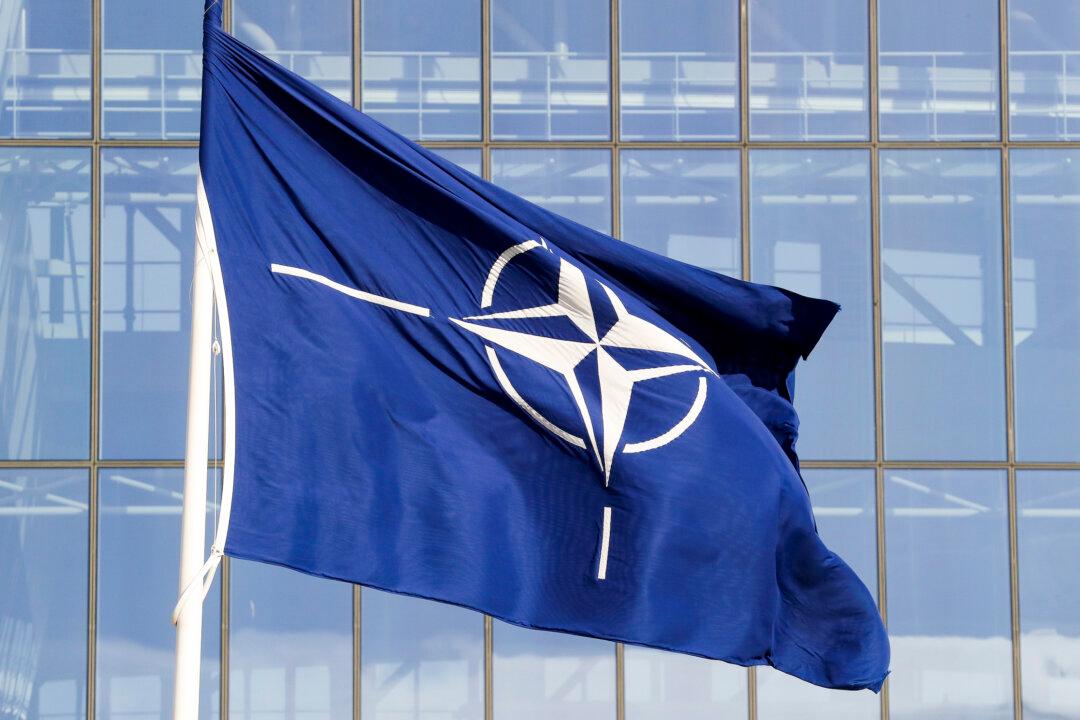Commentary
NATO is focused on defending Europe rather than deterring China. Despite the ongoing war with Russia, the existing NATO mission must evolve to meet a rising communist China, which is now the greatest threat to U.S. national interests and democracy globally.
At the end of World War II, Chinese and Russian communists attempted to gobble up whatever was left undefended by U.S., British, and French forces. They looted and murdered as they went. NATO was founded in 1949 as an alliance of democracies to deter the former Union of Soviet Socialist Republics (USSR) from attacking deeper into Western Europe. But Asia was left comparatively undefended.
At the time, neither the USSR nor its ally, the Chinese communists, had nuclear missiles capable of hitting Washington. As both countries continue to grow these forces today, including hypersonic missiles meant to evade U.S. defenses and capable of destroying the most highly defended of U.S. cities, NATO should correct its past mistake and consider communist China as at least equal to Russia in terms of countries to be deterred. Doing so could mean inviting countries like Japan, South Korea, and Taiwan to join NATO as equal members. NATO would go global.
That makes much more sense than leaving NATO out of a U.S. defense against China, which is far more powerful than Russia. The former USSR no longer exists. Russia took its place as a shadow of its former self and cannot even defeat ill-equipped Ukrainian forces that occupied Russia’s Kursk region last month. Yes, Russia has more nuclear weapons than China. But that’s about it. And despite the war in Ukraine, Russia has thankfully not yet taken the opportunity to escalate to the nuclear attack that Vladimir Putin keeps subtly threatening. Conventional forces have been far more important, at least so far.
Let’s hope it stays that way. However, Beijing could push Moscow toward nuclear escalation just as the Chinese Communist Party (CCP) tacitly pushes Russia to escalate conventionally with a ready supply of dual-use military materiel. This supply is proffered from the very top in Beijing, according to a U.S. official’s Sept. 18 statement. With an economy approximately 10 times the size of Russia’s, as well as industrial capacity, military strength, and a tendency to avoid the fights that other dictators and terrorists openly pick with the United States and our allies, Beijing is smarter and more powerful than Moscow.
The CCP is luring us into a trap of our own making, and from which it is emerging unscathed as a potential aspirant to global hegemony.
That trap is the depletion of our resources in brushfire wars, from Vietnam to Afghanistan, Iraq, Ukraine, and Israel. All of these have left us more militarily experienced but with fewer men and less money and materiel to defend ourselves. Our federal debt is building to a point that risks exponential growth.
This is just as the CCP likely intends. Had we insisted that these wars pay for themselves, for example, through the extraction of natural resources or taxes imposed on foreigners for the security we provide, then we would now be in an advantageous position to defend Asia. Had we kept places already conquered, and specifically Afghanistan, we could have used it as a base for forward operations to deter China and Iran.
However, we didn’t want to look like the bad guy, so we not only left the mineral resources in place but allowed China to extract them in Iraq and Afghanistan while we provided free security.
As noted above, NATO was founded in 1949. That was the same year the former Soviet Union exploded its first nuclear bomb. French Indochina (Vietnam), British Malaya, and South Korea were not in the alliance, and communist forces attacked all three between 1946 and 1950. The Soviets and Maoist China were behind those attacks. It was a major failure of deterrence.
Washington and our allies couldn’t let the communists take all of these countries to use against us in the future, so we fought. In Korea, that fighting was against 2.4 million Chinese troops and Soviet logisticians and pilots who joined on the aggressor’s side. America suffered 137,000 casualties, including 37,000 dead. South Korea’s casualties were 1.3 million innocent people.
Today, every nonaligned country on the front lines with aggressive powers like North Korea, China, and Russia risks the same fate. And the United States risks a far more destructive nuclear war if we intervene. We must still deny territory to our enemies for our democracy to survive long-term, but now those enemies have nuclear weapons. So deterring war from starting in the first place becomes far more important.
The first step in such a deterrence-first strategy is to expand and strengthen our global alliances. NATO is the United States’ strongest alliance, so it’s a reasonable choice for going global. When facing aggressors, peace is achieved through strength, including the strongest global alliances.





